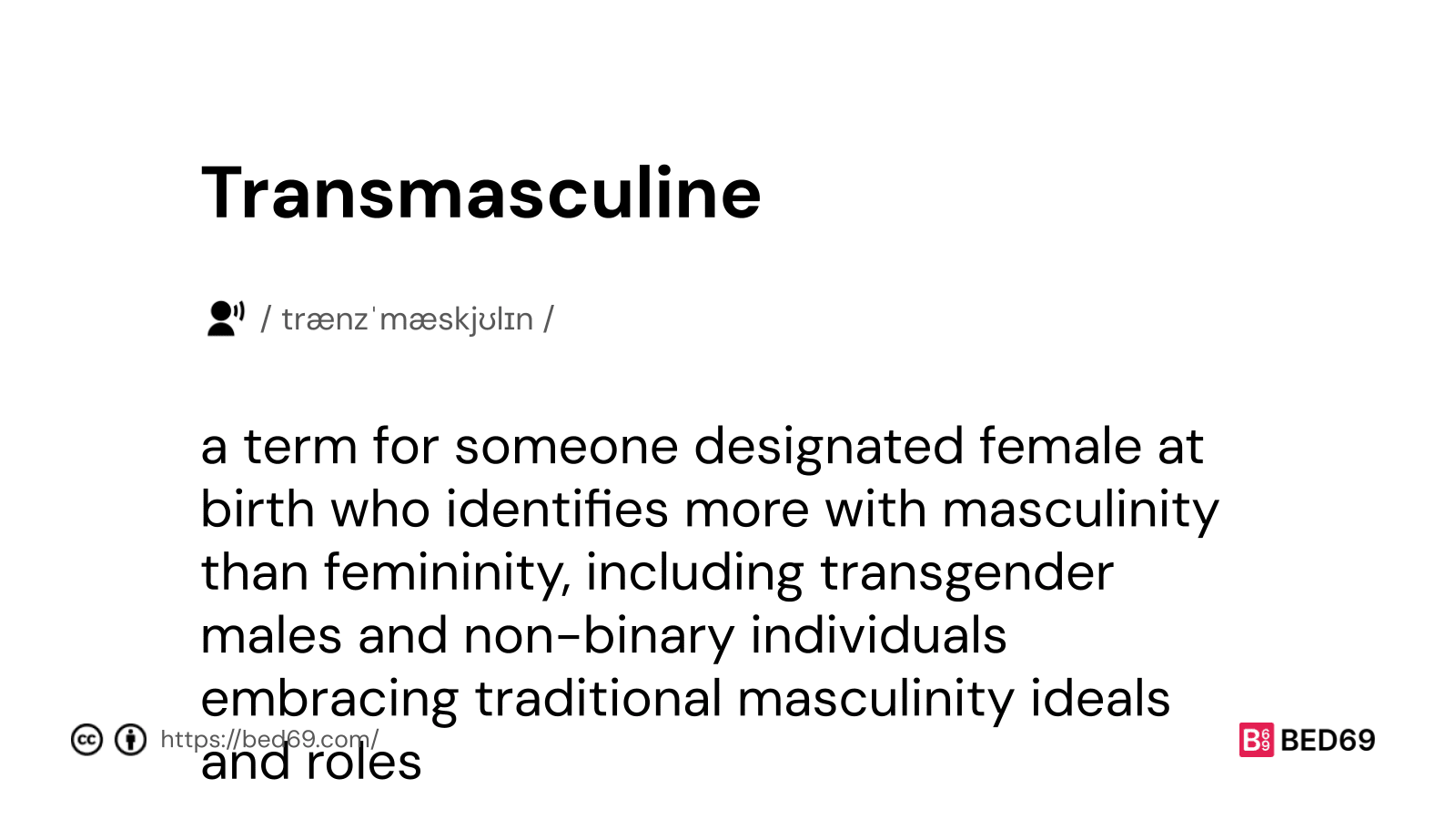What is Transmasculine?
Transmasculine refers to a person assigned female at birth but identifies more with masculinity than femininity. It includes transgender males and non-binary individuals embracing a more traditional sense of masculinity. Identifying as transmasculine doesn’t dictate adherence to typical masculine gender roles or expressions.
Transmasculine pronunciation: / trænzˈmæskjʊlɪn /

What challenges transmasculine individuals face
Transmasculine individuals face various challenges in society. One common struggle is navigating societal norms and expectations surrounding gender. This can lead to discrimination, lack of understanding, and even exclusion from certain spaces.
Additionally, accessing affirming healthcare and support services tailored to transmasculine needs can be difficult, impacting their overall well-being. Mental health concerns, such as gender dysphoria and anxiety, are prevalent among transmasculine individuals due to societal pressures and stigma.
Furthermore, issues related to family acceptance, workplace discrimination, and legal recognition can pose significant hurdles for those on their transmasculine journey. These challenges highlight the need for greater awareness, acceptance, and support for transmasculine individuals in our communities.
Navigating relationships and societal expectations as a transmasculine person
Navigating relationships and societal expectations as a transmasculine person can be complex. Understanding and communicating your identity to loved ones is essential. Some may struggle to grasp the nuances of transmasculinity, leading to strained relationships. It’s crucial to prioritize open dialogue and education to foster acceptance.
Societal norms often pressure transmasculine individuals to conform to conventional gender roles. This can create internal conflicts and external challenges. Finding a balance between personal identity and societal expectations is a significant journey for many transmasculine individuals. Embracing self-acceptance and seeking supportive communities can help navigate these dynamics effectively.
In relationships, communication and mutual respect are key. Partners, family, and friends may need time to adjust to your identity. Patience, empathy, and setting boundaries can aid in fostering understanding and healthy connections. Remember, your identity is valid, and embracing authenticity is a powerful act of self-love and empowerment.
Explore other interesting terms:
